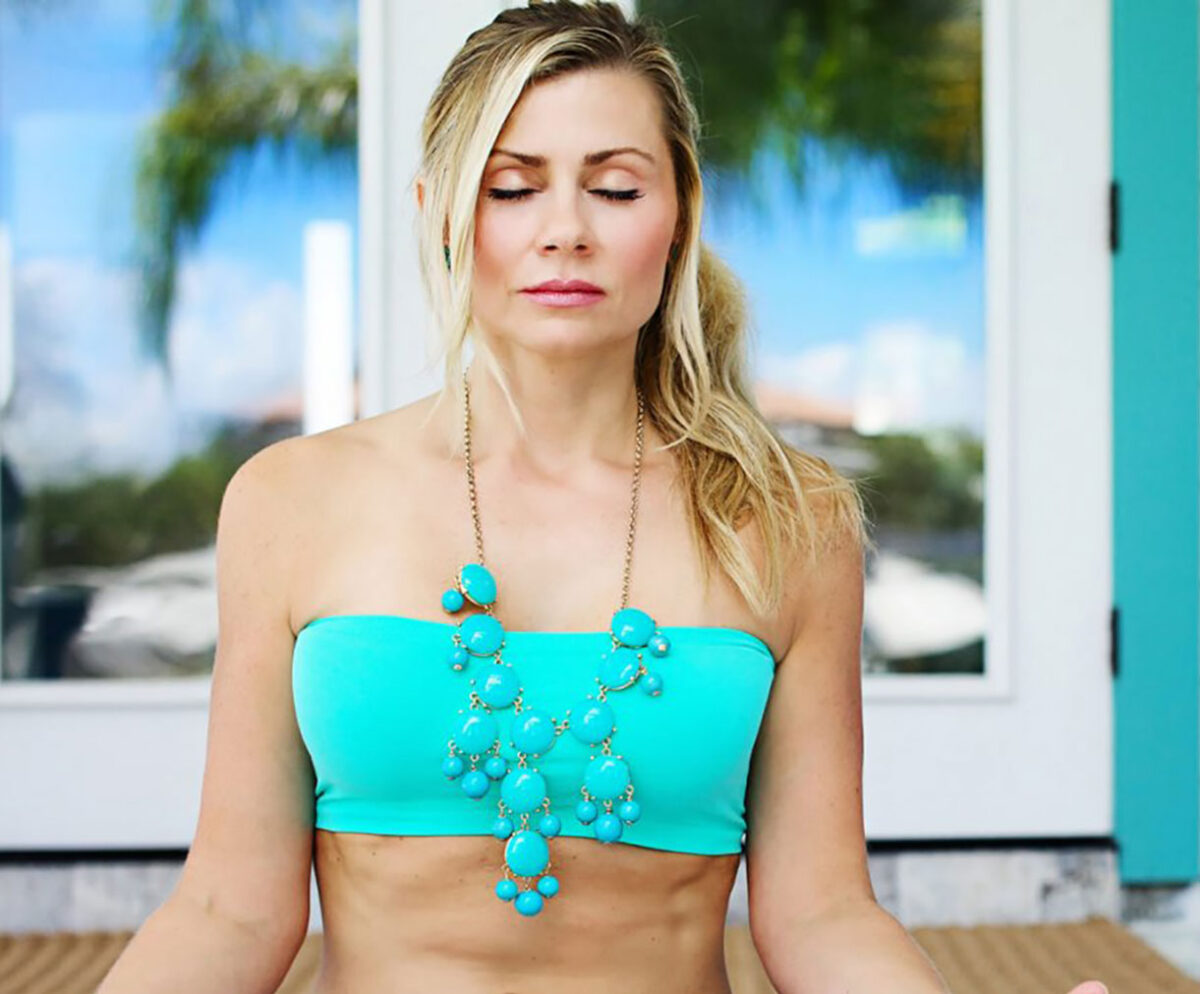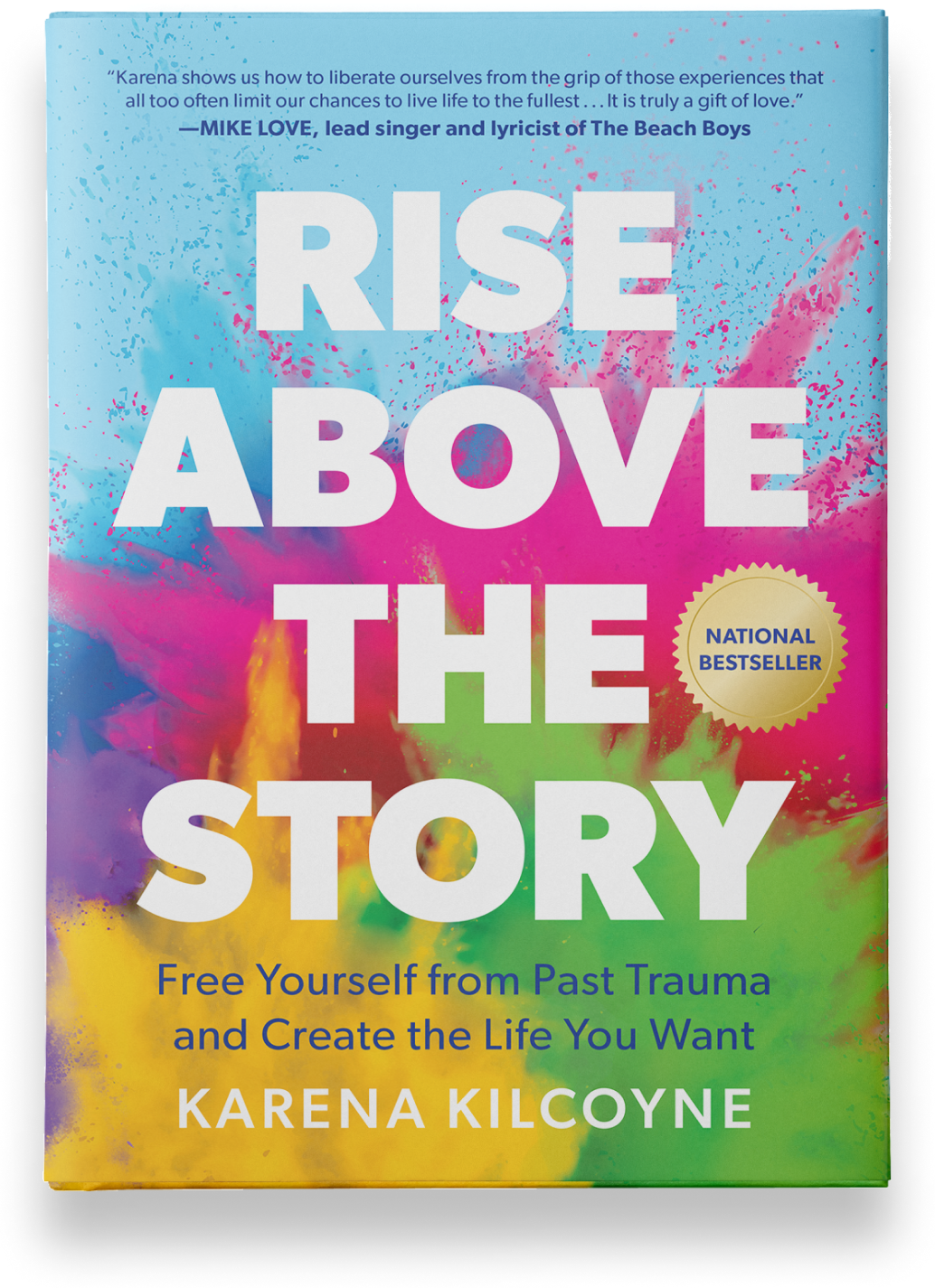Sep 8, 2020

Get your FREE Rise Above the Story Acknowledgement Guide.
Sign up for my newsletter and get your FREE guide to start your journey of self-love and transformation today.

Sep 8, 2020
More than a few years ago while lying poolside and staring at the Costa Rican mountains, I worried why I was so tired. Was I sick? Was I getting sick? What was wrong with me?
The hypochondriac in me rolled over and said to my husband David, “I’m so tired. I must be sick.”
He felt my forehead. Then he asked me if I was suffering from a litany of ailments ranging from nausea to diarrhea to which I replied, “no,” “no,” and “no.”
“My love, I don’t think you’re sick or tired. What you are is relaxed.”
My head spun with wonder. Could he be right? Is this what real relaxation feels like? Like I drank two glasses of wine? Like I was floating somewhere between awareness and sleep? My belly was loose. My legs were heavy. My jaw was unclenched.
How did I get here? And why did relaxing feel so foreign to me?
After years of childhood and young adult trauma, my body was stuck in the fight or flight response. I was in constant overdrive, unable and unwilling to relax. I was a workaholic perfectionist, who was absolutely certain that if I took my eye off the ball and relaxed, my world would fall apart.
What are the Stress Responses and How Do They Keep Us from Relaxing?
My stress response to repetitive trauma was the classic fight or flight response. I vacillated between self-preservation (the fight response) or overworked perfectionism (the flight response).
But in more recent years, trauma therapists have also identified two other stress responses to trauma: freeze and fawn. What do they look like?
Someone who exhibits a freeze stress response will isolate themselves from others and be indecisive about most things, afraid that making the wrong decision will result in a threat to their safety. The state of indecision leaves them restless and anxious.
Someone who is stuck in the fawn stress response may literally fawn all over others. They are the people pleasers, the ones who say “yes” when they really want to say “no.” The ones who give to the point of depletion and then feel resentful towards others. This constant state of people pleasing prevents true relaxation from happening. The need to be loved and accepted drives the person in fawn response to exhaustion.
Whether we’re in fight, flight, fawn, or freeze, our sympathetic stress response is in overdrive. We’re pumping cortisol and adrenaline through our bodies, gearing ourselves up for the next big threat. This stress response stems from fear, survival, scarcity, and feeling unsafe. When we feel like this, it’s impossible for our bodies to relax.
How Do We Get Our Bodies to Turn off Stress Response and Turn On Relaxation?
1. Avoid Overstimulation
When you’re already running on all cylinders, being overstimulated can make you feel worse, especially if you’re sensitive to people’s energy. When I was making the shift out of fight or flight, I avoided people who were energy suckers. I also avoided crowds if I was feeling particularly on edge.
Turning off the television (especially the news) and limiting time on your phone and computer is a must for shifting into relaxation. I know it’s difficult, but a hard stop on screen time a few hours before bed is a crucial for those of us who take longer to wind down.
2. Meditate
Meditation is better than medication! It’s been scientifically proven to lower your heart rate and blood pressure, as well as instilling a sense of relaxation. Meditation downshifts the fight or flight response by turning down the sympathetic nervous system and turning up the parasympathetic nervous system (where we rest and digest).
Meditation is also a great way to stay present. So much of the fight or flight response is due to past trauma and fears about the future. There are countless ways to meditate and apps that are helpful if you’re new to the practice. I like to meditate for 15 minutes, twice a day. In those small spots of time I find an enormous sense of peace and relaxation.
3. Practice, Practice, Practice
Just like anything you want to be good at, you have to practice. Schedule your relaxation time and make it a priority. Shifting out of fight or flight takes time and a willingness to try new things that might help you relax. (Such as meditation!) Whatever you choose to try, make sure you feel safe doing it. Going skydiving for the first time might not be the best way to relax. Just a thought.
4. Say “No” to Others and “Yes” to Yourself
This is a big one for all of you out there who are shifted into the fawn response. People pleasing is time consuming and leaves us feeling depleted. It’s hard to relax and feel happy and safe when we don’t have anything left to give ourselves. So say no to others and yes to yourself. A huge part of shifting out of fight or flight is feeling safe in your own space. You deserve to feel loved and safe so start saying YES to what makes you feel that way.
5. Surrender
This was a big one for me and will be for all of you out there who are living in the fight response. Understanding and accepting what we can and can’t control is a huge step in changing our body’s stress response. Surrendering to the way things are doesn’t mean you’re giving up. It means you have to the grace to accept what you can’t change and the courage to feel safe in spite of it. Some of us may need the help of a good therapist to release the deep traumas and find the sweet spot of surrender. Relinquishing control is often the key to finding inner peace. (If you’d like to read more about this idea, click here.)
Shifting out of fight or flight is challenging, especially if you’ve been living there for a long time. But I’m here to tell you that if I can do it, you can too. These days, when I think about that scared version of me living in overdrive, terrified of what tomorrow might bring, and unable to relax, I wrap my arms around her and squeeze her with all my might.
I tell her everything is okay and we are safe.
Then I invite her to sit with me by the pool, stare at the mountains, and relax.
With resilience, grace, and love,
KK
Related Posts

Get your FREE Rise Above the Story Acknowledgement Guide.
Sign up for my newsletter and get your FREE guide to start your journey of self-love and transformation today.

NEW
RELEASE
ORDER YOUR COPY
Available where books are sold